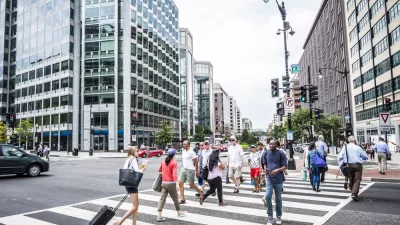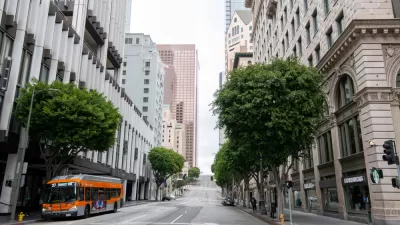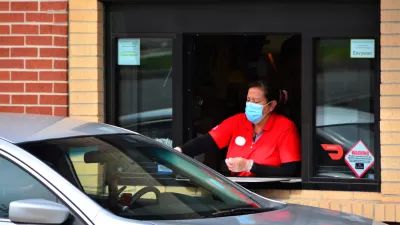Progress in combating climate change won't be possible unless Americans drive less. And Americans won't be able to drive less without changes to land use patterns in the United States.
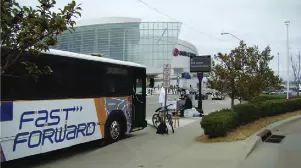
"The Senate Democrats’ Special Committee on the Climate Crisis recently released a report recommending key federal actions in each sector to avert the impacts of climate change," according to an article by Rayla Bellis. First among the actions recommended in the report: the transportation sector should do more to enable more Americans to choose walking, biking, and walking over car trips.
Writing for Transportation for America, Baylis acknowledges that the report incorporates a number of the organization's recommendations for preventing the impacts of climate change, but the new report is noteworthy separate from that success in a few ways, including its attention to land use as a determinant of car trips in addition to its recommendation to enable non-automobile mobility.
In late August, the Senate Democrats’ Special Committee on the Climate Crisis released a climate action report that proposes the kind of paradigm shift that’s needed. The report doesn’t merely go beyond electric vehicles—it leads its transportation section with recommendations on the importance of reducing how much people need to drive by building walkable, transit-served communities where people can live and work in the same area.
The report lays blame for the current car-centric nature of most U.S. cities at the feet of 20th century zoning practices, according to Ballis. The report suggests that despite the inherently local powers of land use control in the United States, federal policy reform could go a long way toward the kinds of outcomes described above.
The Senate report recommends that the federal government provide significant new funding and financing to promote smart growth, safer streets, and public transportation options. Done right, those strategies can be a potent tool to reduce emissions, while addressing critical issues of equity and housing affordability in the process.
Also of note, the report says many of the same land use reforms will be important to implement in rural areas, not just urban areas.
Ballis concludes by noting that the report is an important first step, but far from the legislative action that will be required to achieve true progress on any of these recommendations. "Reports like this are only meaningful if they actually impact federal transportation policy," writes Ballis.
FULL STORY: Senate Democrats recommend less driving—as Senate committee approves billions for new roads

Planetizen Federal Action Tracker
A weekly monitor of how Trump’s orders and actions are impacting planners and planning in America.
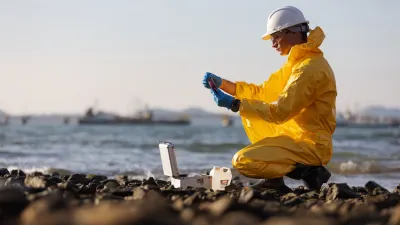
USGS Water Science Centers Targeted for Closure
If their work is suspended, states could lose a valuable resource for monitoring, understanding, and managing water resources.

Congress Moves to End Reconnecting Communities and Related Grants
The House Transportation and Infrastructure Committee moved to rescind funding for the Neighborhood Equity and Access program, which funds highway removals, freeway caps, transit projects, pedestrian infrastructure, and more.

Portland Council Tentatively Approves Sidewalk Repair Plan
The proposal would address sidewalk needs in Portland’s District 1 and District 4.

Expanding Access to Design Education at Honolulu Community College
Honolulu Community College’s Architecture, Engineering & Construction Technologies program highlights the role of community colleges in preparing nontraditional students for careers in architectural and construction technologies.

Integrating Human Rights Into Energy and Extractive Sector Transitions
Why just transition efforts must move beyond economic considerations by embedding human rights principles into business practices to ensure equitable, transparent, and accountable outcomes for affected communities and workers.
Urban Design for Planners 1: Software Tools
This six-course series explores essential urban design concepts using open source software and equips planners with the tools they need to participate fully in the urban design process.
Planning for Universal Design
Learn the tools for implementing Universal Design in planning regulations.
City of Moorpark
City of Tustin
Tyler Technologies
City of Camden Redevelopment Agency
City of Astoria
Transportation Research & Education Center (TREC) at Portland State University
Regional Transportation Commission of Southern Nevada
Toledo-Lucas County Plan Commissions


























